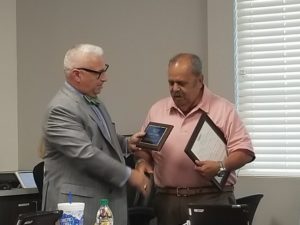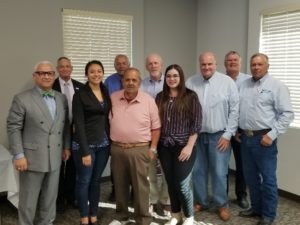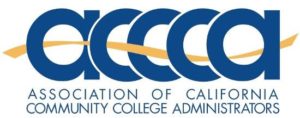YCCD Board Honors Retiring Trustee
 The Yuba Community College District Board of Trustees, Administration, Faculty and staff honored Trustee Xavier Tafoya at the September 13, 2018 Regular Board meeting with a cake reception, adoption of Board Resolution 18-35 and a plaque of appreciation.
The Yuba Community College District Board of Trustees, Administration, Faculty and staff honored Trustee Xavier Tafoya at the September 13, 2018 Regular Board meeting with a cake reception, adoption of Board Resolution 18-35 and a plaque of appreciation.
Mr. Xavier Tafoya served on the YCCD Board of Trustees for 18 years advocating for the education community, including faculty, students, and the administration, as well as the community of Yolo County in an exemplary manner. Mr. Tafoya earned his Bachelor of Arts degree in Anthropology and Secondary California Teaching Credential from California State University, Sacramento. As a small business manager, Mr. Tafoya found time to teach at CSU Sacramento, YCCD, and various elementary, middle, and high schools throughout Yolo County as well as serving as the Mayor of Woodland, CA.
Mr. Tafoya served as the YCCD Board Chair/President in 2004 and 2011, guiding the Board and District through times of change. Always interested in learning, Mr. Tafoy

a attended several trustee conferences each year to keep himself current on the things that affect the operation of community colleges in California and the nation. This commitment made him, and the other board members, a high performing board. Mr. Tafoya’s leadership was instrumental in the accreditation of Woodland Community College, the passing of Measure J Bond, and the development of a District Diversity Plan to attract qualified people of color to the faculty of the District’s colleges.
“Xavier Tafoya leaves a legacy of dedicated service to his community and to the Yuba Community College District. He was and still is a tireless advocate for students and for Woodland,” said Chancellor Houston, “His numerous contributions while on the Governing Board have positioned YCCD to thrive in the years to come.”
The adopted Board Resolution can be found here: Board Resolution 18-35
Senate Bill 577: CCC Teacher Credentialing Partnership Pilot Program
Governor Jerry Brown on September 20, 2018 signed into law a bill allowing aspiring teachers to take classes toward their credential on community college campuses. The bill Senator Bill Dodd introduced 2017 proceeded through many amendments, but ultimately establishes the California Community College Teacher Credentialing Partnership Pilot Program.
The program, in coordination with the state chancellor, under the commission, will award up to three grants, in the amount of $500,000 each, to collaboratives, that would be comprised of at least one accredited degree-granting institution of higher education with a physical presence in this state and at least one community college or colleges. The bill requires these degree programs to be accredited by the commission’s Committee on Accreditation on the basis of standards of program quality and effectiveness.
Priority for the receipt of the grants will be given to a collaborative that is located in areas of the state with low rates of K-12 credentialed public school teachers, demonstrates that its degree program or programs meet the documented labor market demand of its target region, and identifies the resources necessary to offer its degree program or programs.
In an article published in the Community College Daily, by the American Association of Community College, Senator Dodd stated, “Community college campuses are well-suited to training more teachers, especially in underserved rural and urban communities.”
Chancellor Houston, who worked with Senator Dodd’s office to develop this bill, continues to partner with CCC and CSU leadership to coordinate a Teacher Preparation Summit. The summit is scheduled for November 2018 and is hosted by Woodland Community College. The Summit is a convening of CSU Education Colleges, community colleges, county offices of education, and school district leaders from across the central and north state. More information will become available as the time draws near.
Read the entire bill here: SB 577: CCC Teacher Credentialing Partnership Pilot Program
YCCD Chancellor Association Appointments
Association of California Community College Administrators
 Dr. Douglas Houston, was recently elected as the President-Elect of the Association of California Community College Administrators (ACCCA) Board of Directors. Dr. Houston will serve out the reminder of the term through June 2019. Upon expiration of the President-Elect term, Dr. Houston will assume the office of President of the ACCCA Board in the 2019-2020 operating year. ACCCA is a member-supported professional organization for administrators and managers of California’s community college system, providing publications, professional development opportunities, business partnerships, advocacy, peer counseling and assistance to all full-time administrator members, associate members, affiliates and corporate members.
Dr. Douglas Houston, was recently elected as the President-Elect of the Association of California Community College Administrators (ACCCA) Board of Directors. Dr. Houston will serve out the reminder of the term through June 2019. Upon expiration of the President-Elect term, Dr. Houston will assume the office of President of the ACCCA Board in the 2019-2020 operating year. ACCCA is a member-supported professional organization for administrators and managers of California’s community college system, providing publications, professional development opportunities, business partnerships, advocacy, peer counseling and assistance to all full-time administrator members, associate members, affiliates and corporate members.
CCLC Veterans Caucus
 Chancellor Houston was recently appointed as the Co-Chair of the California Community College Veterans Caucus (CCCVC), replacing Dr. Jannett Jackson. The CCCVC represents military veterans at California’s community colleges.
Chancellor Houston was recently appointed as the Co-Chair of the California Community College Veterans Caucus (CCCVC), replacing Dr. Jannett Jackson. The CCCVC represents military veterans at California’s community colleges.
CEOCCCC CEO Workgroup – Student Centered Funding Formula
At the September 21, 2018 CEOCCCC meeting, the CEO Board established a workgroup focused specifically on analysis, review, and implementation of the new Student Centered Funding Formula. The goals of the workgroup is to further evaluate the impacts, address concerns, and to garner feedback and input from districts statewide. The information will be shared among and between members of the workgroup, and reported back to the field. Dr. Douglas Houston, will be the representative for Area 2 of the California community colleges.
District Newsletter
The District Newsletter is intended to share updates from various participatory District-wide decision-making groups, Board Policies and Administrative Procedures, updates from Cabinet, District Services, Fiscal Services, Information Technology, M&O, and Human Resources. The August 2018 District Newsletter is available here: September 28, 2018 District Newsletter
YCCD Governing Board Adopts 18-19 Budget
 The Yuba Community College District 2018-19 Proposed Adopted Budget was presented to the Governing Board at the September 13 Regular Board meeting. The District is required, each year, to hold a public hearing on the proposed budget and adopt a final budget on, or before, September 15.
The Yuba Community College District 2018-19 Proposed Adopted Budget was presented to the Governing Board at the September 13 Regular Board meeting. The District is required, each year, to hold a public hearing on the proposed budget and adopt a final budget on, or before, September 15.
The State Budget was signed by the Governor on June 27, 2018. The 2018-19 State Budget for Apportionment is in transition year one of three to a new Student-Centered Funding Formula. Under this formula the revenue for apportionment uses three calculations: 1) a Base Allocation, which primarily factors Credit FTES; 2) a Supplemental Allocation, which counts low income students; and 3) a Student Success Allocation, which counts outcomes related to the Vision for Success, with premiums for outcomes of low-income students. In addition, Non-Credit and Special Admit FTES are funded at the current rates. The sources used to support the new funding formula allocations remains the same and includes State General Apportionment with Full-Time Faculty Hiring dollars, Education Protection Act (EPA), Student Enrollment Fees (98%), and Property Taxes.
The allocation of the Student-Centered Funding Formula requires the districts: 1) commit to improving student outcomes in the framework of the Board of Governors Vision for Success goals; 2) implement strategies to accomplish those improved outcomes; and 3) demonstrate how the application of these funds will accomplish the goals. In modeling the three-year phase-in of the new “Student-Centered Funding Formula,” if there is no significant increase in either student success outcomes or enrollment, YCCD will actually receive less apportionment in years 2, 3, and beyond. The Board’s Finance Committee has elected to treat the majority of the FY 18-19 apportionment increases as one-time.
The adoption of the 0218-19 budget reflects the effective utilization of financial resources to meet the educational goals of the District. With the introduction of the new Student-Centered Funding Formula, the District has some capacity to address long standing budget principles and established budget stabilization practices. To that end, the focus of the budget is concentrated in the following six areas: 1) balancing the budget; 2) Investing in the Retiree Health Benefits Irrevocable Trust; 3) Restore a prudent fund balance; 4) full-time faculty hiring; 5) investment in innovation; and 6) allocate other on-going apportionment sources in accordance with Resource Allocation Methodology.
Investment in innovation needs to advance the below identified student success strategies and set the stage for the future success of the District: 1) Guided Pathways; 2) Developmental Education Reform; and 3) Enrollment Management.
The full budget presentation and budget handbooks, adopted by the Governing Board, can be found here: 2018-19 Final Budget Public Hearing and Adoption.
Legislative Update
Bills of Interest
AB 1858 (Calderon) – This bill, signed by the Governor, adds to the Donahoe Higher Education Act a provision that requires, by January 1, 2020, and permanently thereafter, each campus of the University of California, the California State University, and the California Community Colleges, and each independent institution of higher education to use the Financial Aid Shopping Sheet as developed by the United States Department of Education or a successor document identified by the Student Aid Commission to inform students or potential students about financial aid award packages.
AB 1894 (Weber) – This bill, signed by the Governor, requires an approved on-campus qualifying food facility that participates in the RMP pursuant to the bill to meet all of the requirements for participation in that program. The bill would also provide that, for purposes of this provision, a qualifying food facility is a facility administered by the postsecondary educational institution.
AB 2098 (McCarty) – This bill, signed by the Governor, requires the Chancellor of the California Community Colleges and the Superintendent of Public Instruction (SPI), with input from the Statewide Director of Immigration Integration and adult education providers, to identify common measures for meeting the needs of immigrant and refugee adults seeking integration, and to identify common measures for assessing the effectiveness of adult education consortia providing immigrant integration.
AB 2248 (McCarty) – This bill, signed by the Governor, requires that the Student Aid Commission, upon the initial awarding and the renewal of a Cal Grant award, to notify in writing a Cal Grant award recipient that, if he or she takes less than 15 semester units or the equivalent per semester or the equivalent or less than 30 semester units or the equivalent per academic year, he or she will not graduate in 4 years. The bill also requires a qualifying institution to notify in writing a student during new student orientation and annual registration that, if he or she takes less than 15 semester units or the equivalent per semester or the equivalent, or less than 30 semester units or the equivalent per academic year, he or she will not graduate in 4 years.
AB 3186 (Medina) – This bill, signed by the Governor, removes the sunset date on provisions of law that authorize the University of California and community colleges to utilize best value procurement.
SB 539 (de Leon) – This bill, vetoed by the Governor, would have increased the credit percentage on the College Access Tax Credit Fund contribution amount from 50% to 75% for taxable years beginning on or after January 1, 2018. The bill would also have increased the limit on the aggregate credit amount from $500,000 to $1,000,000,000 for the 2018 calendar year and each calendar year thereafter. In vetoing the bill, the Governor indicated that because of federal tax law changes, it could invite intervention by the IRS.
SB 1227 (Skinner) – This bill, signed by the Governor, authorizes a density bonus for developers that develop affordable housing for low income students.
SB 1348 (Pan) – This bill, signed by the Governor, requires, beginning in 2019 and in each year thereafter, the chancellor to report, for each community college program that offers a certificate or degree related to allied health professionals, specific information relating to the number of students participating in the clinical training, delineated by program and occupation, with multiyear implementation for the reporting.
Chancellor’s Calendar

1 – Meeting with Trustee Pasquale
2 – Chancellor’s Cabinet
2 – District Consultation Council Meeting
3 – Meetings of the Facilities/Audit and Finance Committees
3 – Meeting of Board’s Ad Hoc Committee to review Trustee applicants
3 – Meeting with Trustee Teagarden
4 – District, College Academic Senate Leadership (DCAS) Meeting
4 – Meeting with Trustee Sandy
5 – Meeting with Student Trustees
5 – Wheelhouse Closing Ceremony for Cohort 2 (UC Davis)
8 to 11 – ACCJC Visit to both colleges
8 – Meeting at Department of Finance (regarding FY 19-20 funding for SB 577)
8 – Student-centered Funding Formula Webinar
9 – CCCL CEO Leadership Academy Planning Call
11 – Governing Board Retreat (Yolo Farm Bureau)
11 – Meeting of the Governing Board (WCC)
12 to 26 – Vacation Trip (Dr. Mayo will be Acting Chancellor)
15 – District Management Council (Professional Development)
25 – WCC Foundation – “We Promise – You’ll Soar” Open House Event
26 – BoardDocs Pro Plus Implementation Training
29 – California Tribal College luncheon meeting with YCCD Governing Board Trustees
31 – Meetings of the Facilities/Audit and Finance Committees
31 – Meeting with WCC President
 Follow Douglas Houston @Yubadistrict
Follow Douglas Houston @Yubadistrict
